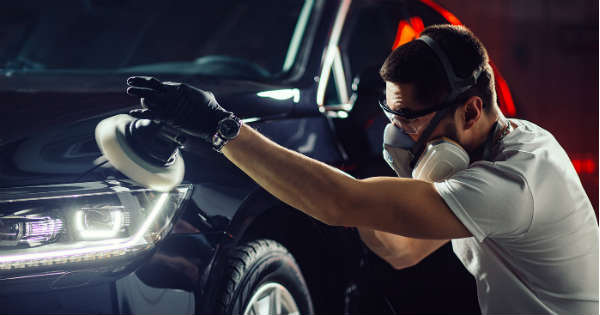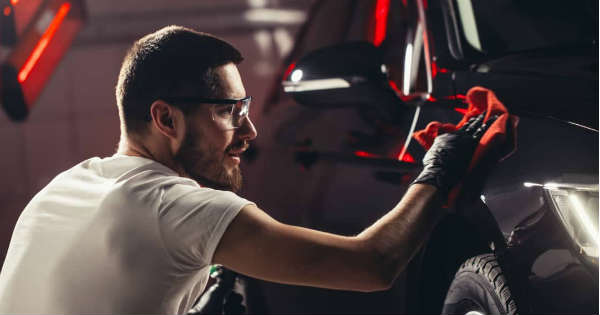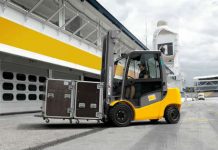In tropical countries or arid regions, such as parts of Africa and the Middle East, caring for one’s vehicle is especially challenging. The climate and weather can gradually eat away at the car paint job, make the air conditioning unit work harder, or damage the engine over time. You don’t want this to happen to your luxury car, so check out this luxury car care tips.

BMWs, Porsches, Bentleys and Mercedes-Benzes cost a pretty penny, so caring for your vehicle is critical to protect your investment and enjoy the comforts of driving it for years to come.
Specialists from a Porsche service center in Dubai share a few pointers on how to keep your car running smoothly and protected from the harsh elements.
Take note of the maintenance schedule
Luxury cars are high-performance machines with features that can make driving buttery smooth. With so many designs and features, it only makes sense that every manufacturer will have a recommended maintenance schedule.
The recommended service intervals vary greatly, even between manufacturers of premium vehicles. For instance, BMW should be serviced every 5,000 to 7,500 miles, while in the case of Bentleys, the range is between 5,000 and 10,000 miles. This amounts to vehicle servicing once a year, although doing this earlier (rather than later) in the year is always better.
Think of it in the same way as getting your annual health exam. There might be nothing wrong with you, but prevention is better than a cure, as they say. Making a few minor fixes is also cheaper than needing to replace the entire engine because a critical part, such as the timing belt, has snapped or gotten worn.
Maintenance schedules require that you take your car to a specialist where experienced engineers and mechanics will check every inch of your vehicle. They will make sure that all parts are running the way they should be.
Get a car wash
Something as seemingly small and insignificant as sand or bird poop can damage the exterior and internal components of your automobile. Bugs and bird poop, in particular, can be acidic. If not handled and treated swiftly, they can penetrate the protective layer of your car and damage the paint job.
In arid areas, such as the deserts of the Middle East, sand and dust storms are a given. Driving through sand storms puts people and vehicles in danger as the swirling dust carries small pebbles and stones, which can injure people or damage cars in the process. Sand can also clog radiators, damage paint, and affect the functionality of the other components and sensors onboard.
People may love the beach, and the sea, but automobiles don’t. Salt is corrosive, and it is everywhere – the wind, rain, roads, and more. Prolonged or continuous exposure can degrade the paint and cause metallic components to rust.
Whether you drive it to a car wash or do it yourself, aim to have it washed at least once a week, more if it is covered in sand or poop. As much as possible, know what products will be used on your vehicle. Certain products may not be designed for use on your vehicle, so ask the staff or read the label carefully to check if it is suited for your car.
Also, consider having your vehicle waxed and polished once a month. Having this done professionally may add to your list of expenses, but it also prevents salt, sand, or poop from sticking. Plus, the process adds a layer of protection to your car paint job.
Clean the interiors
When it comes to car care in the UAE or any other tropical country, it is also worth checking the interiors. Make sure that the interiors are just as clean as any other area in your car.
The leather seating, for one, is a feature that is not found in every vehicle on the market. Take the time and effort to have all the trash removed, and the interiors vacuumed at least once a week. You may want to use a microfiber cloth with a leather cleaning solution to remove debris, dust, or dirt on the surface.
Check tire pressure
Certain environments can affect tire pressure. In arid or tropical areas, the heat can cause the air pressure to rise. At some point, it may cause the tire to pop.
Studies indicate that an increase of 10 degrees Fahrenheit can raise the pressure by 1 PSI. A small change can mean a lot in a tire that typically holds between 30 and 35 PSI. Other than tires exploding, an increase in pressure can also affect braking distance and enhance wear.
Check for tire pressure every time you pump gas to prevent your tires from bursting during your trip. Also, try to note any changes in the treads as these determine how well your tires can grip the road. To be safe, change your tires if the treads go below 1.5mm.
Cover your vehicle
Ideally, you should park your car where it is covered or has shade, such as in a garage. But that is not always possible. For instance, you may be staying at a hotel where there is no shaded parking area, or traveling.
Car covers are not perfect, but they can provide some shade and protection from the elements. When used, they can protect your car from the sun’s UV rays, sand, salt, bird poop, dust, and other small debris.
Go for synthetic oils
Synthetic objects tend to get a bad rap, but not when it comes to cars. Compared to conventional oils, synthetic types are made to withstand higher temperatures for longer periods of time. As such, synthetic motor oils are more effective when used in arid regions and for engines that produce a lot of heat.
Protect your car engine by using synthetic oils when you are driving your luxury vehicle in the tropics or hot places. This way, you prevent sludge from forming inside your engine and causing your car to degrade more quickly. When in doubt, consult the manual or a mechanic specialising in your type of car.
Driving a luxury vehicle is a treat when you’re in the tropics or in desert environments. The smooth handling, soft seats, and air conditioning provides for a lovely ride every time you take it out. But luxury cars are an investment.
Follow these tips to protect your investment. For more tips, get your luxury vehicle checked out by car specialists in your area.






















